
Jerusalem, Mar 25, 2024 / 14:30 pm (CNA).
On Palm Sunday in Jerusalem, Christians participated in the traditional procession marking the beginning of Holy Week with palm and olive branches — one of the most significant events for the Christian community in the Holy Land. The route follows the same path that Jesus took on the back of a donkey when he went to Jerusalem to celebrate the Passover.
The procession departed from Bethphage on the eastern side of the Mount of Olives. The faithful then ascended the Mount of Olives, walked along the ridge — enjoying one of the most beautiful panoramas of Jerusalem — and then descended on the western side, passing by the sanctuaries of Dominus Flevit (where Jesus wept over Jerusalem) and Gethsemane, where Jesus experienced the most painful hours of his passion. From there, the procession entered the city through the Lion’s Gate and stopped at the Basilica of St. Anne.
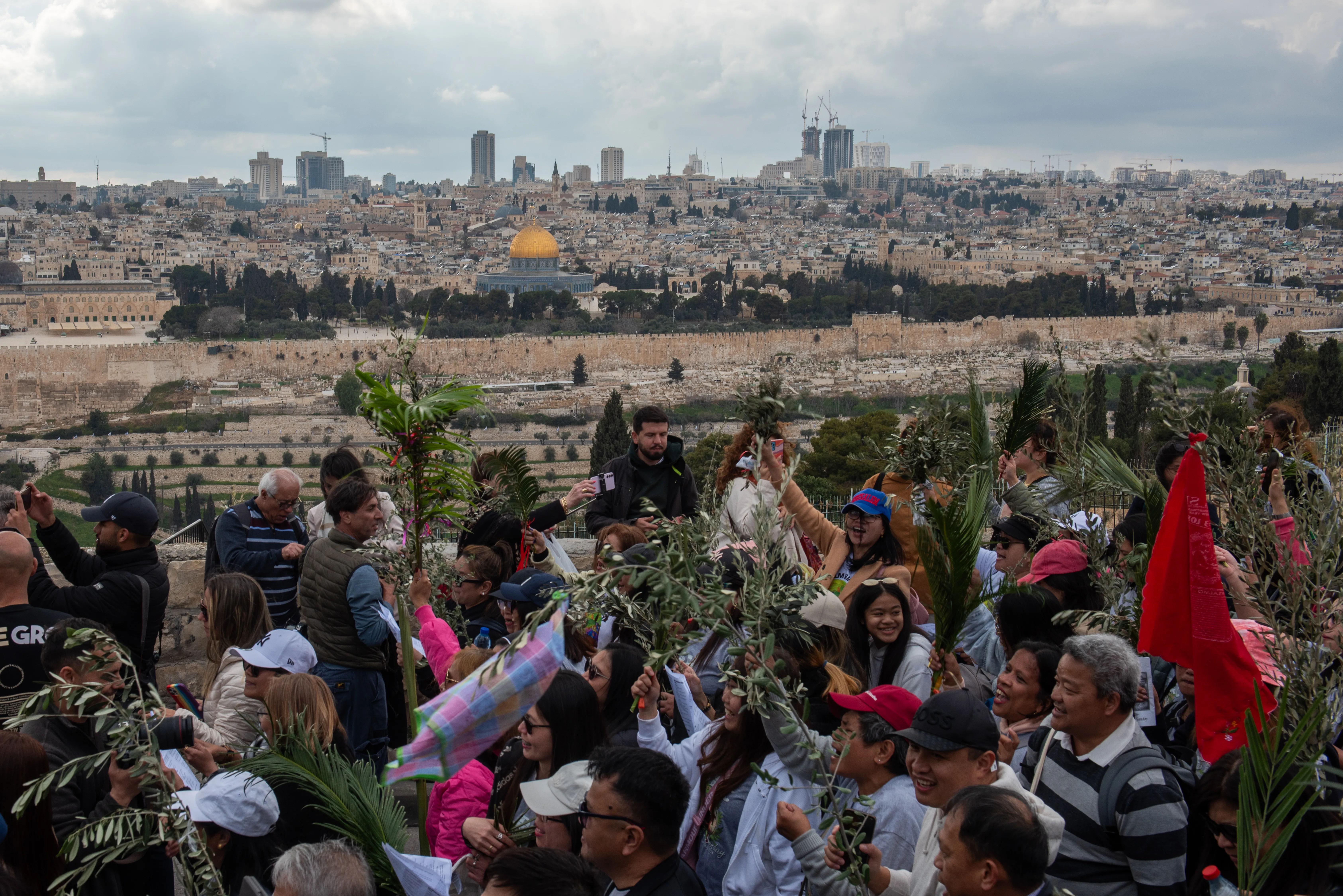
About 3,000 people were present — a much smaller number than usual. Due to the ongoing war, there were few pilgrims. Christians from the Palestinian Territories obtained 2,000 permits for the day, but with such short notice many were unable to reach the Holy City. However, several faithful arrived from Tel Aviv and the Galilee.
Faced with such significant absences, those present not only responded with closeness in prayer but also with a message of joy, defying the rain-laden clouds looming over the Holy City. And so, as in past years, the various communities present enlivened the procession with music, songs, and dances along the route, expressing praise to God and the joy of being Christians.
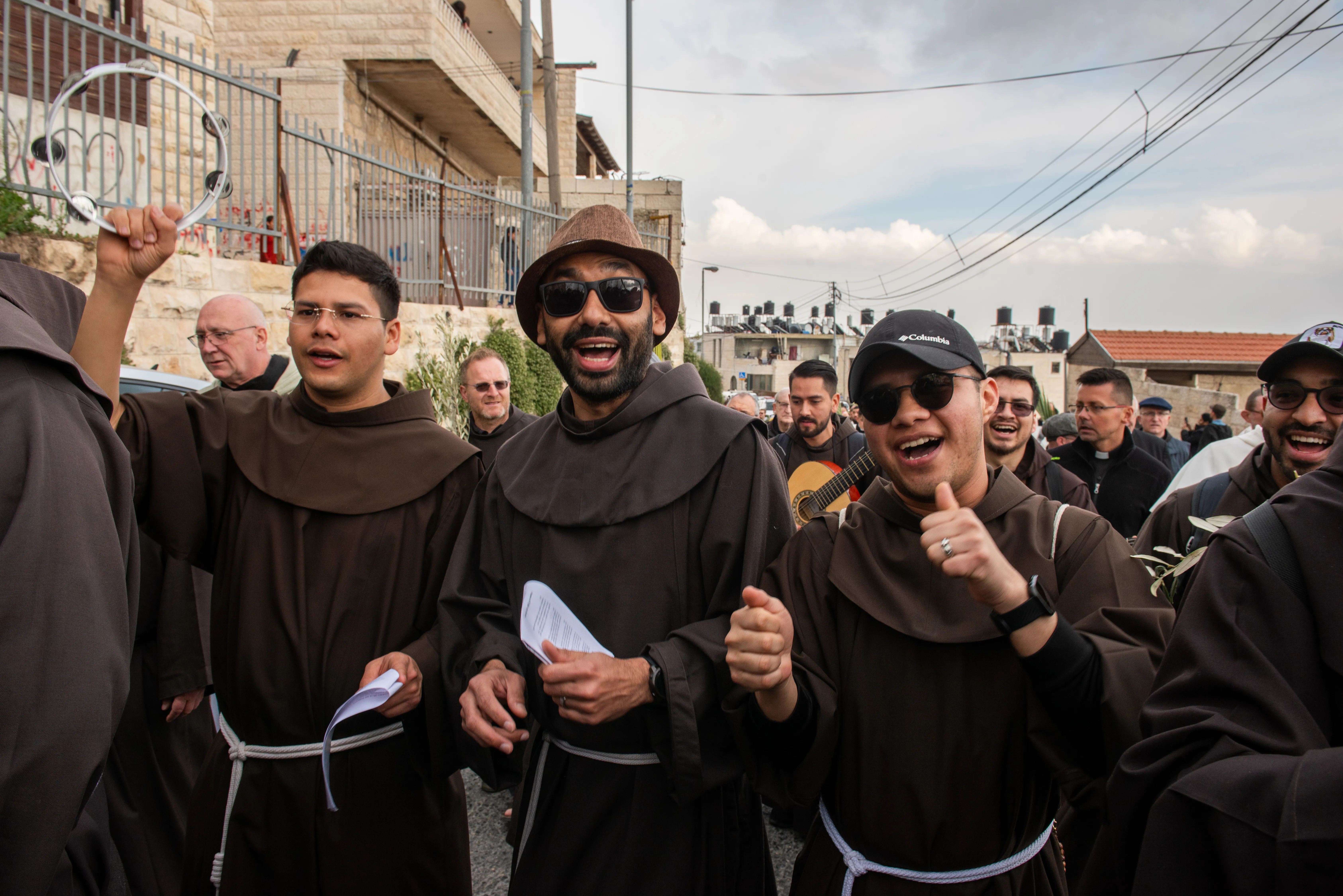
Along the road and from the balconies, several families and children from the Muslim neighborhoods observed the event. A small group of children offered water to passersby from the top of one of the inclines. As he entered the Lion’s Gate, the patriarch was greeted with showers of rice and small treats such as chocolates and candies.
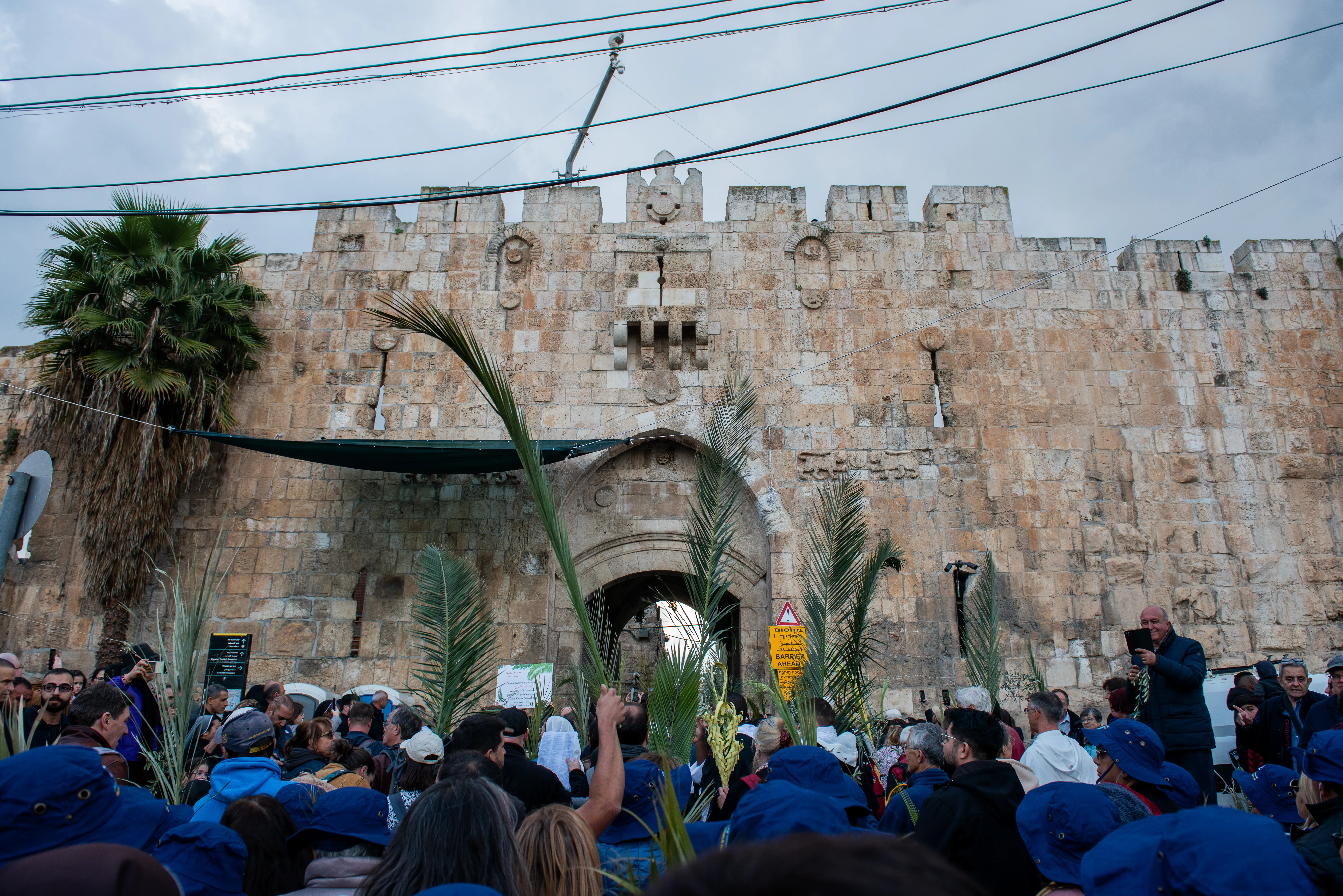
“Even though we are few, it is important that there has been this triumphant entry. We have many problems, but we are truly happy that Jesus is our Lord! He is our joy and our strength,” said the Latin patriarch of Jerusalem, Cardinal Pierbattista Pizzaballa, who led the procession.
Also present were the custos of the Holy Land, Father Francesco Patton, and Archbishop Adolfo Tito Yllana, the apostolic nuncio in Israel and apostolic delegate in Jerusalem and Palestine.
The patriarch wanted to particularly remember the small community in Gaza, “very dear to all of us,” for which he expressed words of great admiration. Also present at the procession was Father Gabriel Romanelli, the parish priest of Gaza who has had to remain in Jerusalem, who was visibly moved.
“We will never abandon you,” said the patriarch to the Christians of Gaza, “and we will do everything we can to support you. I know that this night seems endless, but do not be afraid, even this night will end, and the dawn of the third day will come for you and for all.”
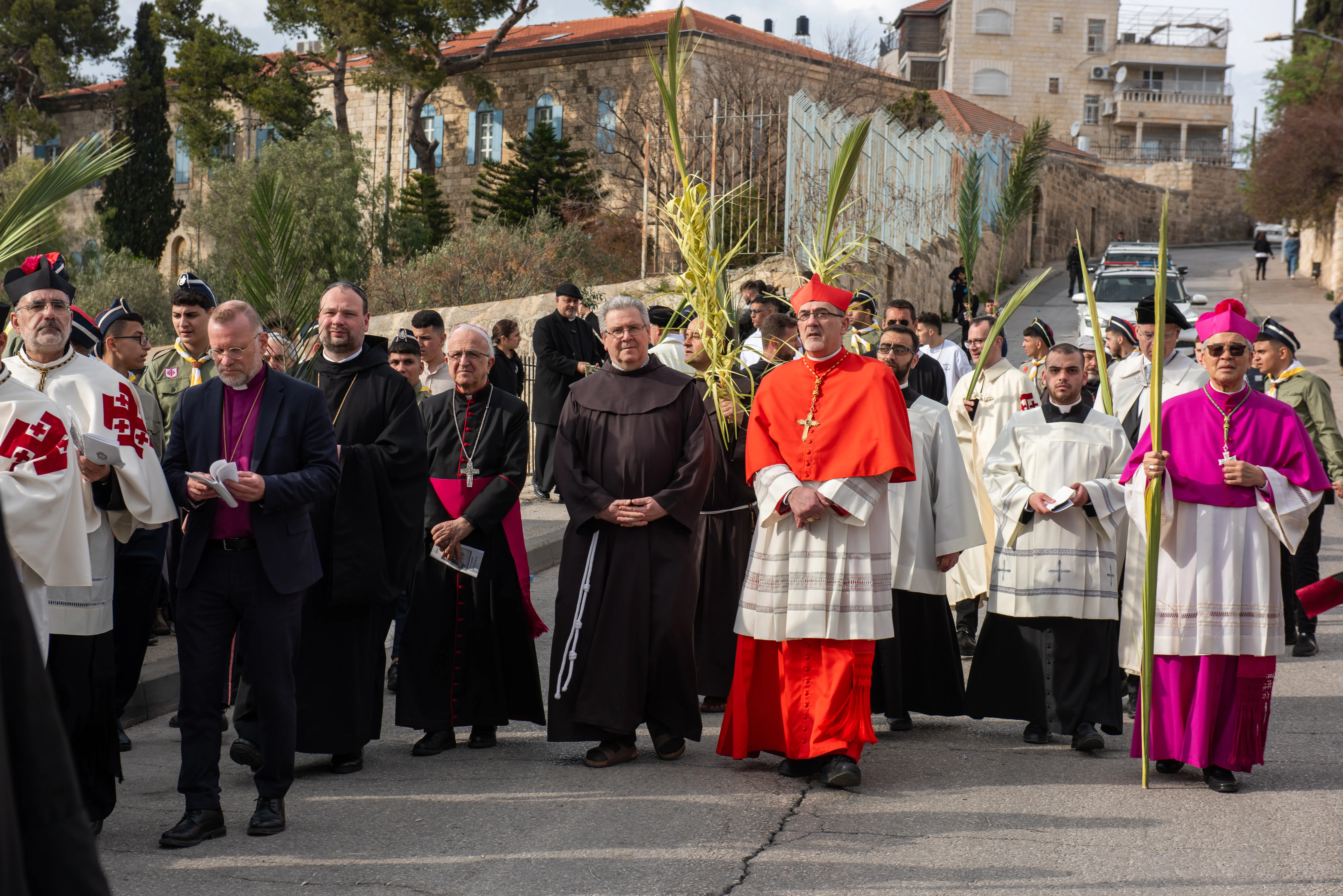
In bidding farewell to those present as Holy Week began, the cardinal said: “Let us renew our commitment to follow Jesus and let us not be afraid! Jesus on the cross is the victory over the world, not the victory of arms, but that of love.”
The procession from Bethphage to Jerusalem was preceded on Sunday morning by the solemn Palm Sunday liturgy at the Holy Sepulcher, presided over by Pizzaballa. The Mass commenced with the Palm procession, during which celebrants and faithful waved palm branches and chanted “Hosanna,” circling the edicule of the Holy Sepulcher (the small shrine that houses the tomb of Jesus Christ) three times to symbolize the three days Jesus spent in the tomb. The Eucharistic celebration took place at the altar of Mary Magdalene because the space in front of the edicule was reserved for the Greek Orthodox, who were observing the first Sunday of Lent, known as the “Sunday of Orthodoxy.”
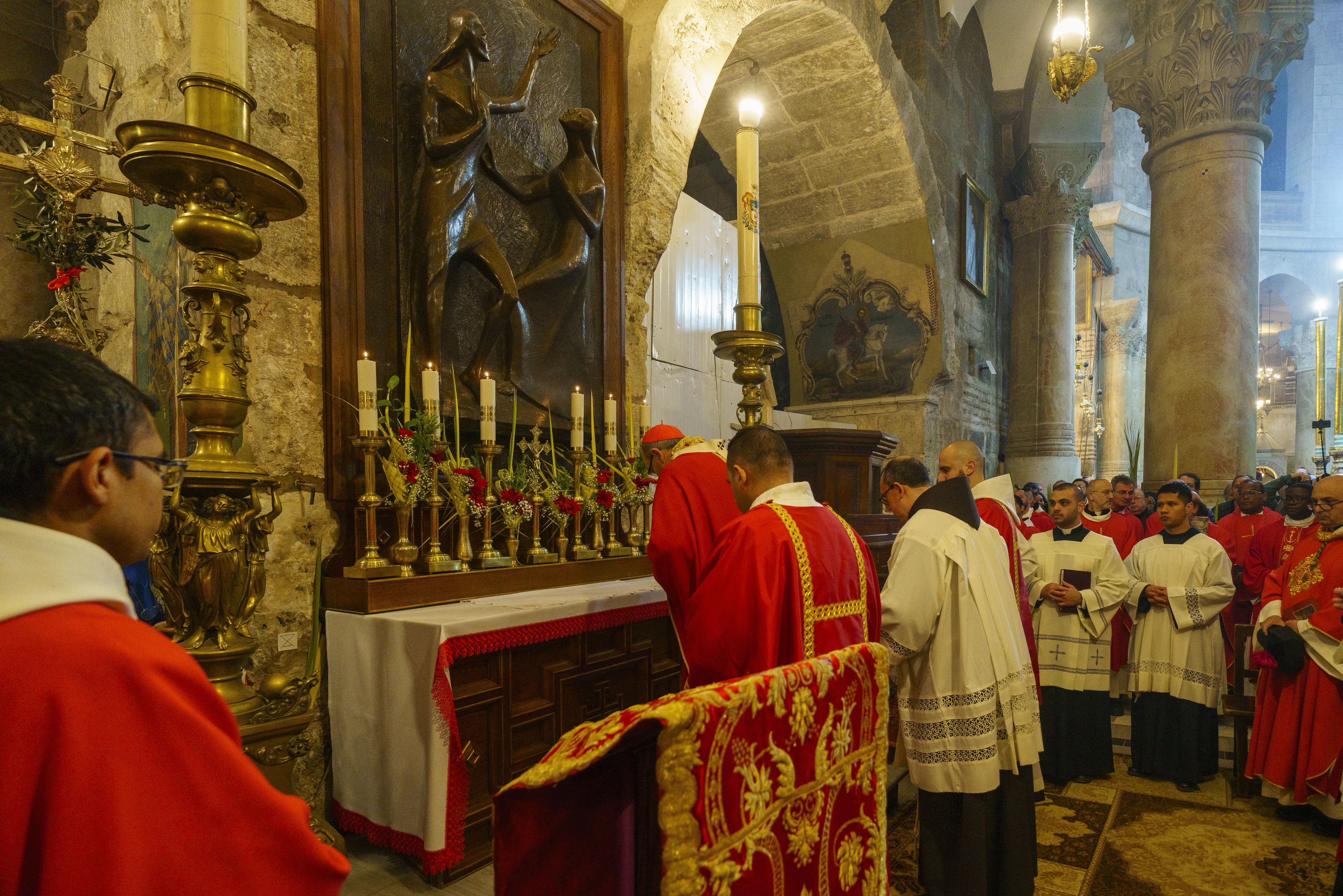
If you value the news and views Catholic World Report provides, please consider donating to support our efforts. Your contribution will help us continue to make CWR available to all readers worldwide for free, without a subscription. Thank you for your generosity!
Click here for more information on donating to CWR. Click here to sign up for our newsletter.






Joy was in my heart when I heard them sing: “Lets go to God’s House”.
This, in spite of the fact that for all intents and purposes the Nativity was canceled in the Holy land including Bethlehem. 🤔